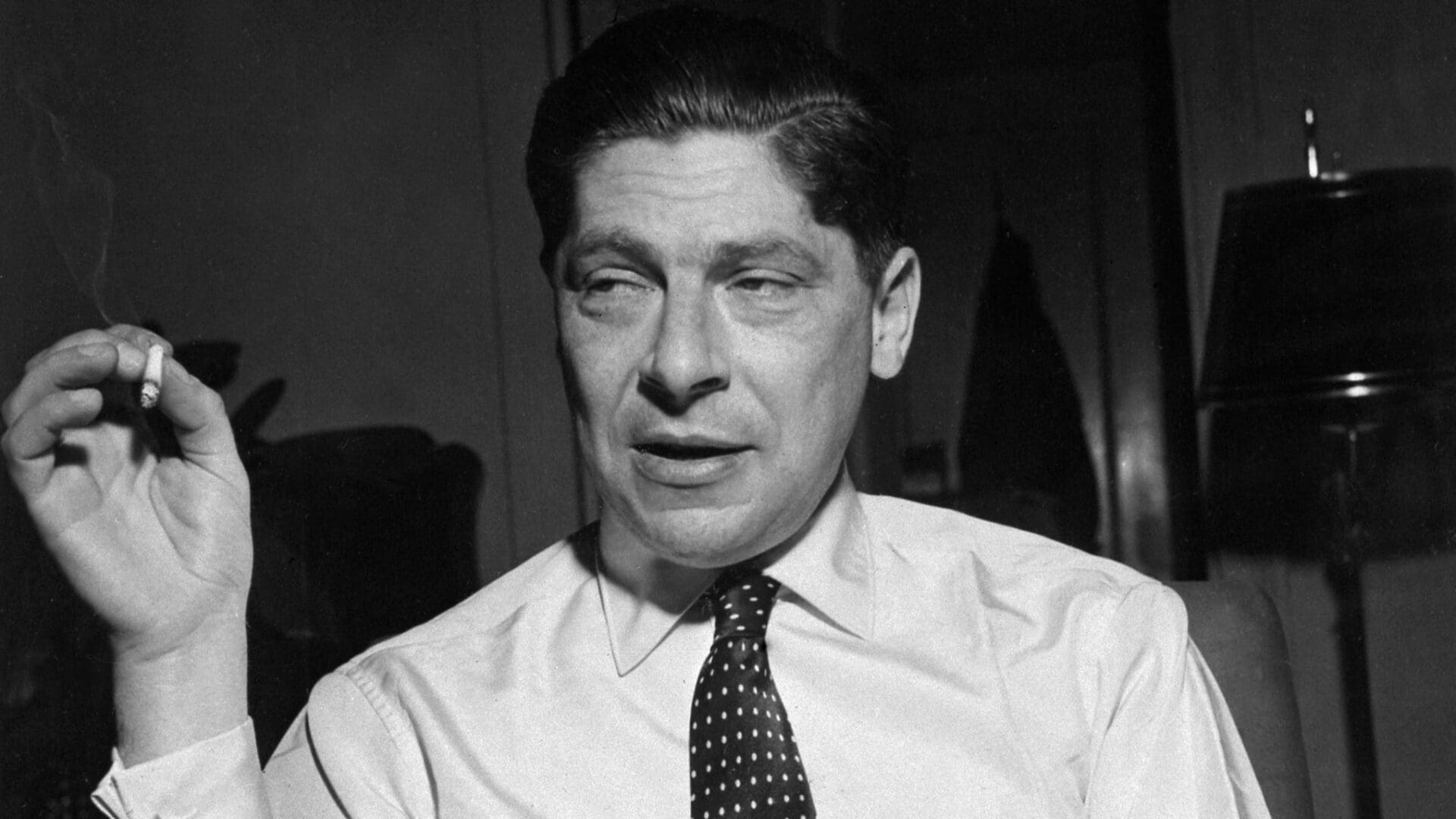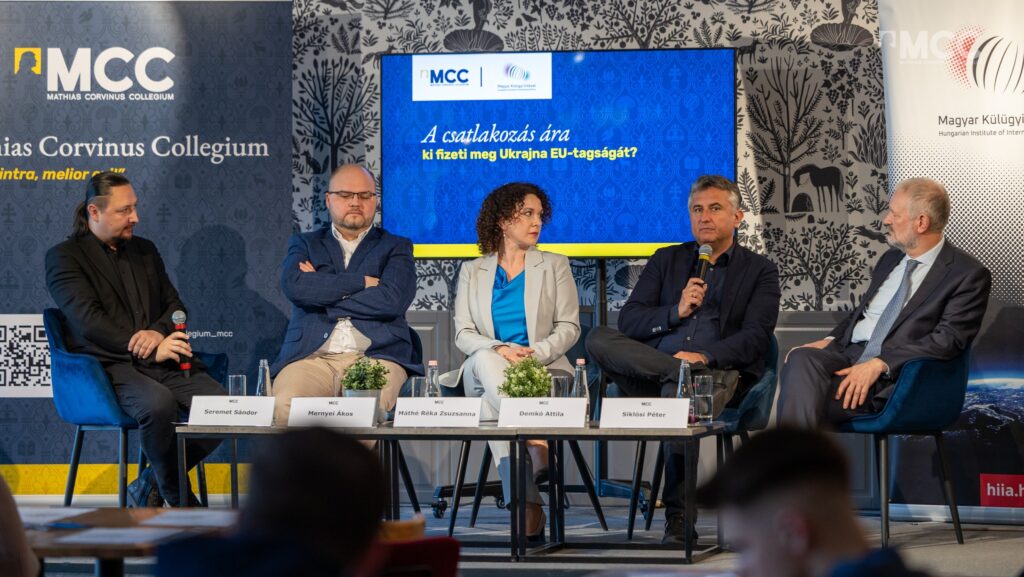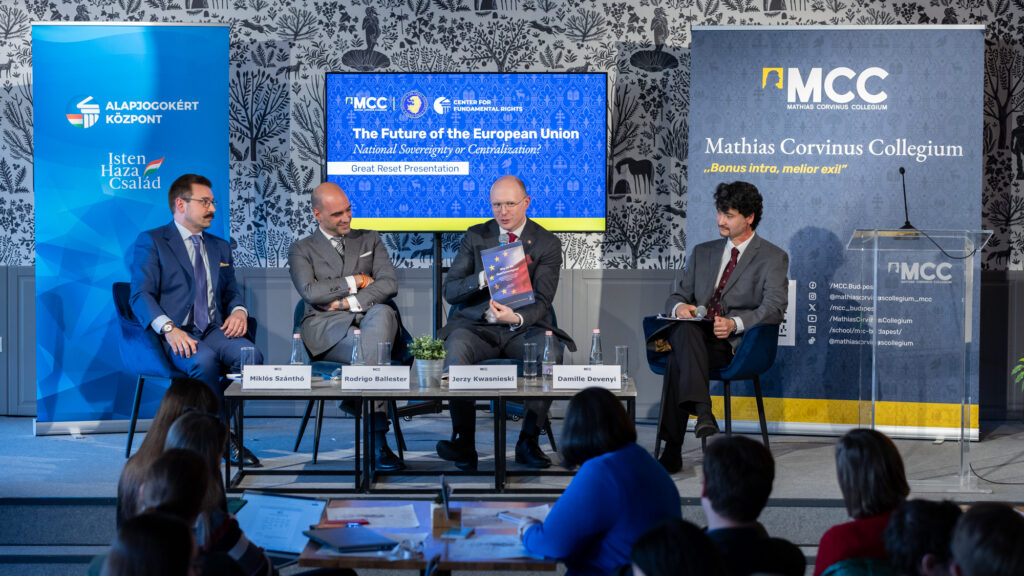A review of Miklós Bálint Tóth’s From Ideology to Nostalgia – Excursions with Koestler and Márai
Political scientists often forget that our knowledge of politics stems not only from science. This is not only a temptation for quantitative researchers, but qualitative investigations might also focus narrowly on political phenomena. That is natural and, most of the time, practical. Lawyers should deal with law, economists with economics, and political scientists with politics. But what if we can better understand political reality and its nature by extending our investigations to areas outside political science, such as literature?
That is one of the central ideas of Miklós Bálint Tóth’s new book released in Hungarian, which can be translated as From Ideology to Nostalgia – Excursions with Koestler and Márai.[i] Tóth is a young political scientist at the Mathias Corvinus Collegium who presents a slightly reworked version of his dissertation, so we assume at the outset that we will be reading a serious piece of writing. In this respect, there is no reason to be disappointed; the background, aim, structure, and arguments presented are the result of extensive research (not to mention the subheadings, which capsulize the arguments almost poetically).
In justifying his venture, Tóth—beyond arguing that literature helps to understand the complex nature of human existence—recalls the ‘invaluable intellectual impact’ on European political thought of great books
such as Sophocles’ Antigone, Shakespeare’s history plays, and George Orwell’s 1984.[ii] The interdisciplinary field that connects literature and politics obviously exists, especially in the Anglo-Saxon world. Nevertheless, as the author argues, it is underdeveloped in Hungarian political science.[iii] Assuming that Hungarian literature is also relevant to political theory, Tóth analyses three literary works: Darkness at Noon by Arthur Koestler, and Judgment in Canudos and Sindbad Goes Home by Sándor Márai—from a political theoretical perspective.
Ultimately, this is a scientific investigation, but this time, the subject of the analysis falls outside of it (and we benefit from it). The first chapter also follows a scientific approach by detailing the theoretical and methodological considerations. It turns out that these considerations are indeed necessary since there are numerous ways of looking at literary works from a political scientific point of view. Moreover, one must (or at least can, as Tóth does) introduce the subject from two angles: both from that of literary studies and political science. Concerning the former, Tóth argues that the approach to be applied is the so-called ‘new criticism’, which treats the literary subject as an autonomous entity. This means that the scope of interest is the works’ internal content, while many other factors, such as the writer’s personality and its impact on the book, or the social environment in which it was written, are not considered. In my view, Tóth perceives well that the substantial political arguments are to be carved out from the texts. Still, his critique—and the critique of the new criticism—seems exaggerated. It is fortunate that ultimately Tóth applies this approach as considerations, not as a rule, and shares a few additional pieces of information—for instance, on the authors and the origin of the texts—in his analysis.
The Hungarian-born Arthur Koestler’s Darkness at Noon, through the story of the old Bolshevik party leader, Rubashov, phenomenally illustrates the underlying ideological structure and dynamics of what we know as the Moscow trials. The analysis immediately presents why it is worthwhile to systematically apply a political theoretical lens, even in fiction, in which the political messages are immediately apparent. In other words, Darkness at Noon is a work full of descriptions related to politics, so a magnifying glass is not necessary. Still, the systematic method Tóth uses really contributes to our understanding of ideology and ideological thinking (I believe it is much more about the latter, even if it is not emphasized enough). To mention a few substantial arguments that are concluded from the books’ plot: ideological thinking is not necessarily concerned with objective reality; it naturally leads to radicalism; and—somewhat paradoxically—seems to replace its ideological nature with neo-Machiavellian pragmatism when the question of power politics emerges.
The second work of fiction analysed is Márai’s Judgment in Canudos, which is not only internationally less known but also relatively peripherical in the Márai corpus. The initial idea of the novel relates to the student protests in 1968 Paris. Tóth cleverly cites Sir Roger Scruton’s argument, raising the poetic question: ‘What, I asked, do you propose to put in the place of this “bourgeoisie” whom you so despise, and to whom you owe the freedom and prosperity that enable you to play on your toy barricades? ’[iv] Márai’s understanding relates to Scruton’s argument, or to be more precise, first his ‘un-understanding’ since he is also searching for the just reasons for the unjustified rebellions. The Hungarian writer partly explores this question by ‘travelling’ to the mythical Canudos, a quasi-anarchical community in Brazil. Therefore, the focus is not on ideology now but on order, anarchy, and the curious interplay between them. For instance, how is it possible to maintain anarchy? If you have mechanics to keep it up, it will become a part of the order, as Tóth rightly argues. Nevertheless, the play is not only about political order and anarchy but also carries a deeper anthropological aspect: the question of order and anarchy (and the desire for both) in individual human life. The delicate balance between Tóth’s close reading and the secondary literature used, which characterize most of the book, convincingly show that anthropological elements do play a role in politics. Whether it is a parallel between the nature of politics and human beings or a casuistic relationship is not evident from the analysis, at least for me.
The last ‘case’ examined —as the reader might guess from the title—revolves around nostalgia. This is the chapter where Tóth really gave way to political theory with a slight departure from the sequence of the book’s events. This is possible as Márai’s novel Sindbad Goes Home, written to pay tribute to the Hungarian writer Gyula Krúdy, who wrote about Sindbad’s adventures, is more of a mood piece. Tóth is well aware that it is burdensome to grasp nostalgia, or again, the nostalgic way of seeing/thinking/speaking, which looks to the past to see the correct form of (political) order, while in the present, it perceives the decline prevailing. Severe emotional states are associated with this—loneliness, homesickness, insecurity, alienation, sadness or even grief. This is less the action-oriented political ideology presented up to this point in the book, as there is a lack of vision for the future in the text. Nevertheless, even if it is a moderated form of it, it can lead to a utopian nostalgia in which our perspective is biased, partly due to the loyalty of the past which right-wing or religious people are more prone to. Agreeing with Tóth’s conclusions, I would still find it worthwhile to examine in more detail
how populism (which he also mentions) is able to transform nostalgia that stems from the past into a political vision of the future.
Of course, recurring questions of political theory appear in all three writings, which Tóth concisely summarizes at the end. I would rather not spoil the great findings of the author but emphasize that the interpreter’s role—in this case, Tóth’s perspective—is vital in such writing. Beyond the relevant scientific literature, he seems to be more familiar with conservative-realist schools of thought, but he is also able to reflect critically on these insights. This is a great merit. Although I personally do not share all the author’s interpretations (the best interpretations might flow from debates anyway), it is essential to point out that Tóth can demonstrate that Hungarian writers do add to our understanding of politics if we interpret them correctly. Further steps, as Tóth concludes in his book, might be to use literary works for political education. Now, thanks to Tóth’s book, soon to be published in English, too, we are one step closer to that.
[i] Mikós Bálint Tóth, Az ideológiától a nosztalgiáig. Barangolások Koestlerrel és Máraival, Budapest, MCC Press, 2023.
[ii] Tóth, Az ideológiától a nosztalgiáig, 11-12.
[iii] Tóth, Az ideológiától a nosztalgiáig, 15.
[iv] Tóth, Az ideológiától a nosztalgiáig, 137quoting Roger Scruton, ‘Why I Became a Conservative’, New Criterion,. 2003. https://newcriterion.com/article/why-i-became-a-conservative/.








